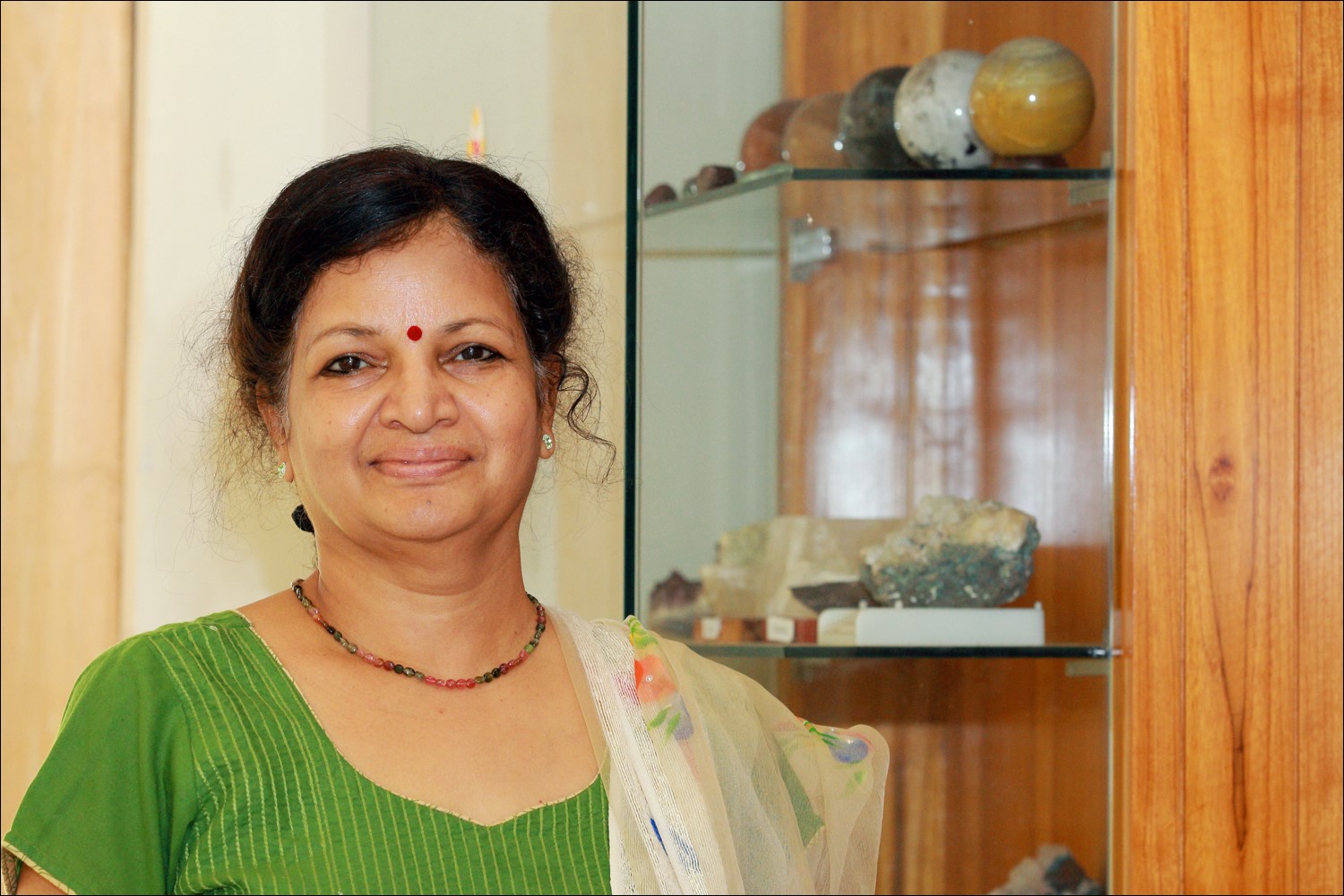Women in Science – Prof. Kusala Rajendran

Prof. Kusala Rajendran is a seismologist at the Centre for Earth Sciences. She joined IISc in 2007. Her area of research is earth science (earthquake-related studies). She completed her PhD and post-doc in the Department of Geological Sciences, University of South Carolina, USA.
When did you first realise that you wanted to be a scientist?
I do not think there was any such plan in the early days of my student life. I did my Chemistry major in a top college in Cochin (St. Teresa’s) and I wanted to be a chemist, like a cosmetic chemist. But fate took me to the University of Roorkee (now IIT, Roorkee) where I was exposed to the topics in Geophysics and I changed my mind and gave up my admission to the Department of Chemistry. That exposure to new topics fascinated me, thanks to my wonderful teachers.
Why did you choose this area of research?
Mostly because I just got fascinated about the way earth works; its history and its existence.
What are the big unresolved questions in your field?
Difficulty in predicting earthquakes; why does the magnetic field reverse itself once in a while, and why is it so random?
What is the most important advice you got that you think has helped you in your career?
To take risks, to be bold and to hold on to one’s convictions.
—————————————————————————————————————-
“Why does the magnetic field reverse itself once in a while and why is it so random”
—————————————————————————————————————-
If you had any women mentors or role models in science, who were they and what do you think you’ve learned most from them?
I had no women mentors, as there are very few people in my field who are my predecessors. I did not have any women faculty who taught me. This field is mostly male-dominated.
What is the most fulfilling thing about a life in science?
The ability to be creative, to think independently and to pursue ideas that are useful to society.
————————————————————————————————
“To take risks, to be bold and to hold on to one’s convictions”
————————————————————————————————
What do you like most about working in IISc?
The ability to work without interference and the opportunity to work with colleagues with independent minds, mentor students and contribute towards the culture of doing good science.
If there is one thing you’d like to change about IISc, what would it be?
IISc could do better with more women faculty and more women at the top levels.
What would be your advice for aspiring women scientists?
To learn to balance between family and career, which is the most difficult part of being a working woman.
Click here to view about a few of the Other Women in Science




